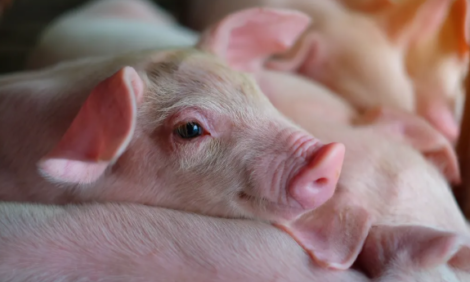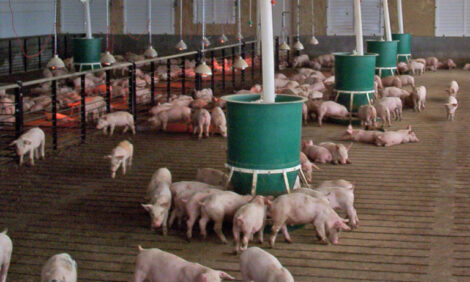



Animal Cloning and Implications for the Food Chain
This report examines the potential issues involved with cloning animals for commercial industry, prepared for COI, on behalf of their client, The Food Standards Agency.Executive Summary
Background
Animal cloning is an emerging technology in the EU (although already more established in the US), and there is potential that, if its use becomes economically viable, food derived from cloned animals will enter the food chain across the world.
It is thought that this topic is likely to encounter a significant amount of consumer interest as the technology develops. For this reason, the Food Standards Agency commissioned research to explore initial public perceptions of animal cloning and to identify what the key issues and areas of concern/uncertainty are, particularly in relation to food.
Research Objectives
The overall aims of the research were to inform the development of the Agency’s communication around this issue, to ensure that the consumer is fully informed of all aspects of the technology and to ensure that all areas of potential public concern are addressed when the acceptability of cloned animals for food production is being assessed in the EU and therefore becomes an issue more visible to the general public.
The research objectives addressed the following key areas:
- Perceptions of current farming practices including breeding practices and views on cloning as an assisted reproductive technology
- Levels of knowledge and perceived benefits of animal cloning
- Animal welfare issues and other ethical concerns
- Safety concerns in relation to food derived from clones and their offspring
- Views on the need for, and nature of, regulation of animal cloning
- Views on labelling of foodstuffs linked to cloned animals
- Views on the role of the FSA in relation to this new technology.
Research Method
Given the complex nature of the topic and the evidence from previous research that public awareness and understanding of the issues are limited, a deliberative approach was adopted based on reconvened workshops, with participants taking part in two three hour sessions as well as carrying out their own background reading and research. The first workshop focused on current livestock breeding methods, an explanation of how clones are produced, how this technique can be applied to animal livestock breeding and the implications of this for the food chain. The second workshop focused on participants’ views on buying and eating food derived from clones and their offspring as well as the steps they thought should be taken if such food went on sale in the UK.
Four sets of workshops were conducted, one in each of England, Scotland, Wales and Northern Ireland.

Key Findings
Current Animal Livestock Breeding
- It was accepted that livestock breeders actively manage the process in order to ensure they breed from their ‘best’ animals. With the exception of artificial insemination, most people had not heard of the various forms of assisted reproductive technologies currently in use
- In this context, most participants felt animal cloning represents a quantum leap from ‘giving mother nature a helping hand’ to ‘interfering with mother nature’ .
- Initial levels of knowledge about, and understanding of, cloning varied widely.
- Participants struggled to identify any convincing benefits of the technique. They felt the only ‘winners’ were likely to be biotech companies, livestock breeders, farmers or food retailers and they were concerned that the main motive for introducing animal cloning was a pecuniary one. They questioned whether consumers would derive any tangible benefits.
- As participants learned about the current low efficiency rates of the cloning method they became increasingly concerned about the implications for animal welfare. This became a significant factor behind their reluctance to accept food derived from clones and their offspring.
- The research highlighted a number of other concerns that the public are likely to voice in relation to the use of animal cloning for food production. These included concerns about where the technology might lead (in particular, to human cloning) and whether mankind has the moral right to pursue such a course.
- Underpinning many of their concerns was a lack of trust in the various players involved including biotech companies, scientists, livestock breeders, farmers, government, food manufacturers and retailers.
- If the FSA, or any other body, wishes to be a credible and reliable source of independent advice in this area, it is essential that it is seen to transcend the needs and aspirations of these different players .
- Opinions were shaped by previous events especially in relation to BSE/vCJD and GM food.
- Many participants were concerned that cloning could result in food that was unsafe for human consumption. This was partly a function of the perceived high incidence of miscarriages and deformed and short-lived offspring resulting from the process. It was also because of a fear that the process of cloning might somehow create new diseases or affect the food in some way that will be harmful to humans.
- There were also concerns that cloning might impact on food quality, consistency, uniformity and price.
- There is a major mismatch between the methods used by regulatory authorities to assess food safety and the public’s perception of what is needed. Participants wanted to see methods for assessing food safety that were analogous to the approach used in clinical drugs trials.
- If the efficiency of cloning can be greatly improved, this will lessen the idea that the resulting offspring may pose food safety concerns. However, unless the mismatch in perceptions about the required method of assessing food safety can be addressed, the public are likely to harbour major concerns that such food is unsafe to eat.
- If food derived from clones and their offspring were to go on sale in the UK, the research has provided a clear steer in terms of the steps that would help to increase consumer confidence. Irrespective of how participants felt about buying and eating such food, there was a high level of agreement about how it should be introduced and regulated.
This included:
- regulations that address the entire process from animal breeding and welfare to food production and human health, including the import and export of clones, their offspring and semen/embryos, and food derived from such
- some form of licensing not only of the process of cloning animals but also covering how such animals enter the food chain
- an agreed set of standards and procedures coupled with proactive monitoring and enforcement
- traceability of clones and their offspring.
- Informing and educating the public about current regulations may help increase consumer confidence when coupled with (possibly) new controls on who can clone, how they do it and how such animals end up in the food chain.
- There was a call for all food derived from cloned animals and their offspring to be clearly labelled - not just from a food safety perspective but to enable consumers to make an informed choice. The greatest challenge lies in working out how far removed an animal needs to be from a cloned ancestor before it is considered ‘normal’ .
- The FSA – possibly in partnership with other bodies - was seen by most as having a key role to play in the debate about food derived from clones and their offspring both in terms of setting and policing the rules as well as informing and educating the public.
- Whatever its role, it is crucial that it is perceived to be independent and trustworthy.
- There was evidence of a clear gender divide. Men often took a more rational approach, were somewhat less concerned about, and more willing to consider buying and eating, food derived from clones and their offspring. Women seemed to engage at a more emotional level, often as mothers/grandmothers, and were more worried about animal welfare and food safety. As a result, they were more likely to reject the idea of buying/eating such food. Given the fact that women tend to be the main food shoppers in many households, their views on such food are likely to have the greatest impact on any future uptake.
Conclusions
The key areas of concern that participants expressed are summarised below:
Based on this research, if the general public are to accept the idea of buying and eating food derived from clones and their offspring, each of these concerns would need to be addressed.
Further Reading
| - | You can view the full report by clicking here. |
May 2008








